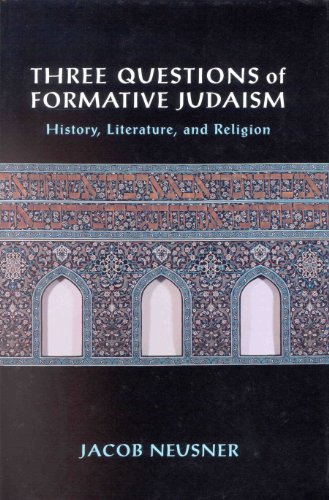

Most ebook files are in PDF format, so you can easily read them using various software such as Foxit Reader or directly on the Google Chrome browser.
Some ebook files are released by publishers in other formats such as .awz, .mobi, .epub, .fb2, etc. You may need to install specific software to read these formats on mobile/PC, such as Calibre.
Please read the tutorial at this link: https://ebookbell.com/faq
We offer FREE conversion to the popular formats you request; however, this may take some time. Therefore, right after payment, please email us, and we will try to provide the service as quickly as possible.
For some exceptional file formats or broken links (if any), please refrain from opening any disputes. Instead, email us first, and we will try to assist within a maximum of 6 hours.
EbookBell Team

0.0
0 reviews
ISBN 10: 039104138X
ISBN 13: 9780391041387
Author: Jacob Neusner
The academic study of Judaism requires a systematic inquiry into the history, literature, and religion--and eventually the theology--as revealed in the historical documents themselves. Under this premise, Three Questions of Formative Judaism encounters the canonical writings of Judaism in the context of their creation at a certain time and place. How something is said thus becomes as important as what is said. Bringing nearly fifty years of research to bear on these fundamental questions, Jacob Neusner challenges his readers to face the difficult, often unasked or neglected questions about the nature, background, and purposes of Rabbinic Judaism and rewards them with an enriched understanding and a stronger foundation for tackling the even more elusive questions concerning the theology of formative Judaism
Part 1: The Question of Survival and Transformation – How Judaism Reconstituted Itself
Part 2: The Question of Literary Centrality – How Sacred Texts Became the Axis of Jewish Life
Part 3: The Question of Emerging Religious Ideas and Practices – How Core Beliefs and Rituals Took Shape
three questions of formative judaism
3 questions about judaism
three judaism facts
judaism questions and answers quizlet
judaism questions quizlet
Tags: Jacob Neusner, Questions, Judaism